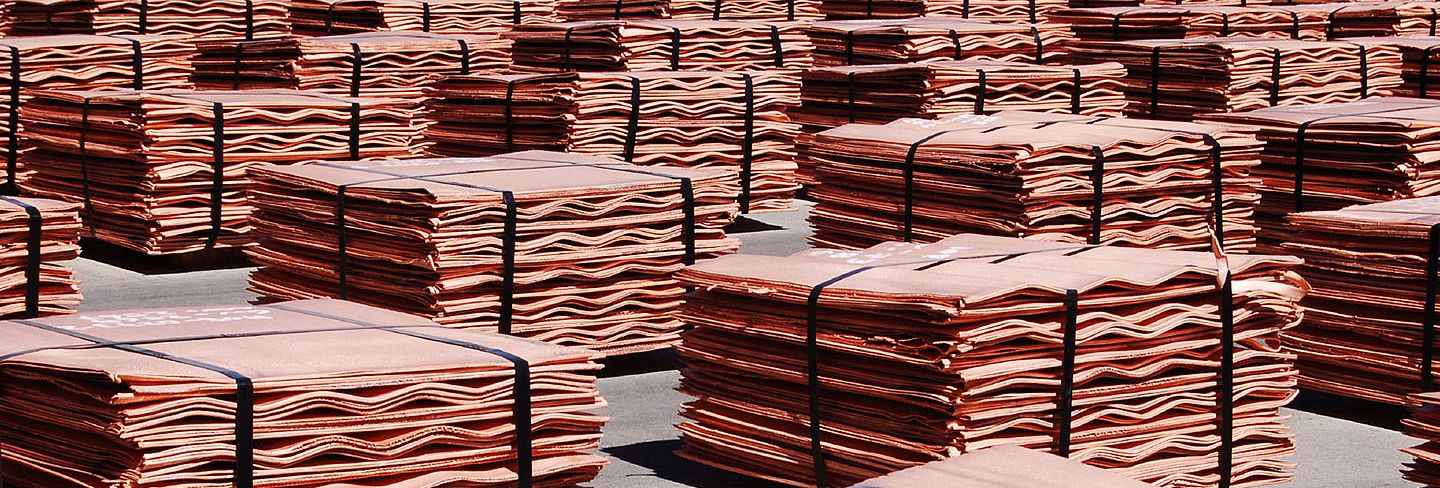Why Copper Products Are Important for Electrical Applications and Efficient Wiring
Exploring the Diverse Applications of Copper Products in Modern Industries
Copper items have established themselves as indispensable parts throughout a myriad of modern-day markets, mainly due to their impressive conductivity, pliability, and resistance to deterioration. From enhancing the efficiency of electric systems to playing an essential duty in eco-friendly energy technologies, the flexibility of copper appears. In addition, its recyclability settings it as a sustainable option in manufacturing and electronic devices. As sectors progressively prioritize technology and sustainability, the diverse applications of copper necessitate a closer examination, particularly concerning their potential influence on future ecological practices and technological innovations.
Electric Applications of Copper
Copper is an essential material in the electrical market, representing approximately 60% of the complete need for non-ferrous steels globally - Copper Products. Its remarkable electrical conductivity, which is almost twice that of aluminum, makes it the favored selection for a large range of electrical applications. From wiring systems in business and property buildings to high-voltage power transmission lines, copper makes sure effectiveness and dependability in power distribution
Along with wiring, copper is integral to the production of electrical components such as motors, transformers, and generators. These elements utilize copper's thermal conductivity and malleability, essential for warmth dissipation and efficient efficiency. Copper's resistance to rust improves the life expectancy and resilience of electric systems, making it an economical solution in the lengthy term.
The growth of renewable resource resources, such as solar and wind power, has even more boosted the need for copper in electrical applications. As markets change in the direction of lasting power services, copper's function ends up being also a lot more critical. In general, the convenience and performance attributes of copper strengthen its standing as a cornerstone product within the electric industry, driving innovation and performance throughout numerous applications.
Pipes and Piping Solutions
In contemporary plumbing systems, the option of materials considerably influences both functionality and durability. Copper has become a favored choice because of its distinct residential properties, including rust resistance and antimicrobial characteristics. These characteristics guarantee that copper piping stays risk-free and durable for transporting safe and clean water, a crucial consideration in household and industrial applications.
One of the vital advantages of copper in pipes is its capability to withstand high temperatures and pressures, making it ideal for a range of applications, from warm water systems to home heating and cooling networks. Additionally, copper's adaptability enables easier setup in intricate piping layouts, minimizing the risk of failures and leakages.
One more noteworthy advantage is copper's long lifespan, frequently exceeding 50 years with correct maintenance. This long life not just minimizes substitute prices however additionally contributes to lasting techniques by decreasing waste. In addition, copper's recyclability straightens with modern-day ecological standards, advertising a round economic situation within the pipes sector.
Copper in Renewable Energy
The convenience of copper prolongs beyond pipes applications, playing an essential duty in the eco-friendly energy field. In solar panels, copper is used in solar cells and electrical wiring, helping with effective power conversion and transmission.

Moreover, as the global demand for electrical lorries (EVs) increases, copper's role in battery systems and charging facilities comes to be much more significant. this The material's ability to conduct electrical energy efficiently is essential to the performance of EV batteries, enhancing variety and billing speed.
Copper's Role in Electronics
Electronics manufacturing relies greatly on copper's exceptional residential or commercial properties, especially its high electrical conductivity and thermal efficiency. These qualities make copper a perfect choice for a variety of digital parts, including connectors, motherboard, and circuitry. The steel's ability to efficiently transfer electrical signals ensures marginal power loss, which is crucial in high-performance electronic devices.
In addition, copper's thermal conductivity plays a substantial function in heat dissipation, protecting sensitive parts from overheating. This is particularly essential in modern-day electronics, where compact layouts cause enhanced warmth generation. Copper is also favored for its malleability and ductility, allowing it to be easily formed right into intricate designs that meet the needs of advanced digital applications.
With the increase of customer electronics, telecommunications, and electric automobiles, the demand for copper in the electronic devices sector remains to grow. As advancements in innovation advance, copper remains indispensable to attaining greater performance and dependability in digital products. Its recyclability even more boosts its charm, as makers look for sustainable options look at this now without compromising quality. Therefore, copper continues to be a cornerstone material in the ever-expanding area of electronics.
Ingenious Utilizes in Manufacturing

One notable application remains in additive production, where copper-based materials are used in 3D printing processes. This allows for the creation of complicated geometries and light-weight components, especially in the aerospace and auto sectors. Furthermore, copper's thermal conductivity makes it an ideal option for warmth exchangers, boosting effectiveness in commercial air conditioning systems.
Furthermore, the rise of wise production has actually seen the unification of copper in IoT devices, where its conductive abilities sustain advanced picking up innovations. In the world of eco-friendly power, copper is essential in the manufacturing of photovoltaic panels and wind generators, promoting more efficient energy conversion and distribution.
As markets pursue sustainability and development, copper's adaptability and efficiency proceed to place it as a critical material, driving developments in manufacturing and contributing to the development of smarter, much more reliable products.
Conclusion
In summary, copper products show remarkable convenience throughout different contemporary sectors. Copper Products. Their premium conductivity boosts electric applications, while deterioration resistance guarantees dependability in plumbing. The indispensable duty of copper in renewable resource and its necessary feature in electronics underscore its relevance beforehand sustainable practices. Furthermore, ingenious usages in making highlight copper's adaptability and withstanding significance. Jointly, these applications show copper's crucial payment to technical development and commercial efficiency in modern society.
From improving the performance of electrical systems to playing a vital role in eco-friendly energy innovations, the adaptability of copper is evident. As industries significantly prioritize development and sustainability, the varied applications of copper require a closer examination, especially concerning their potential impact on future technical innovations and ecological techniques.
The development of eco-friendly energy resources, such as solar and wind power, has resource actually better increased the demand for copper in electrical applications. Overall, the convenience and performance qualities of copper solidify its condition as a foundation material within the electrical sector, driving development and effectiveness across different applications.
The flexibility of copper extends beyond plumbing applications, playing an essential role in the eco-friendly energy sector.